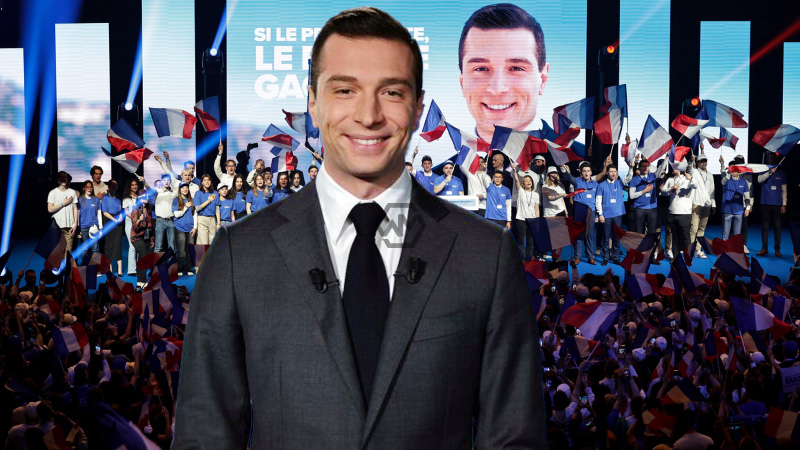- Marine Le Pen is banned from public office for five years due to a corruption ruling.
- Jordan Bardella, 29, emerges as the leading far-right presidential prospect.
- Le Pen’s influence still overshadows Bardella’s path to candidacy in 2027.
Jordan Bardella’s political profile has surged following the court ruling that temporarily removes Marine Le Pen from the electoral landscape. At just 29, he is being positioned as the fresh face of the National Rally, France’s dominant far-right party.
However, Bardella’s rise is far from assured. Marine Le Pen’s symbolic grip over the party remains ironclad, and her refusal to endorse Bardella creates internal hesitation. If she is ultimately cleared to run, Bardella could be sidelined just as he gains traction.
Between Loyalty and Ambition: Bardella’s Delicate Balancing Act in Le Pen’s Shadow
The 2027 French presidential race may still be two years away, but the far-right is already in motion. Marine Le Pen’s legal troubles, stemming from a nearly €4 million embezzlement case, have triggered a temporary political vacuum. Jordan Bardella, her protégé and party president, is being seen as the likely successor—whether he is ready or not.
While Bardella has youth and popularity on his side, he faces resistance within his own ranks. National Rally officials are reluctant to support him outright, fearful of challenging Le Pen’s authority prematurely. This internal hesitation could leave Bardella politically stranded if Le Pen is permanently disqualified too late for him to effectively campaign.
Externally, Bardella may represent the National Rally’s best chance to reach new voters. Many French citizens wary of Le Pen’s family legacy may be more open to Bardella’s modernized, media-friendly image. His leadership could help rebrand the party, making it more palatable to the political mainstream while maintaining its core message.
Nonetheless, Bardella’s future hinges on timing. A delayed candidacy could blunt his momentum, while early assertiveness might spark backlash from Le Pen loyalists. Navigating that narrow window between respect and ambition could define not just his campaign—but the future of the French far-right.
Jordan Bardella stands at a pivotal juncture—either he becomes the face of a reinvented far-right, or he remains forever in Le Pen’s political shadow, waiting for a nod that may never come.
“History doesn’t turn on inevitability, but on who steps forward when others step back.” — This reflects Bardella’s opportunity in Le Pen’s moment of crisis.



